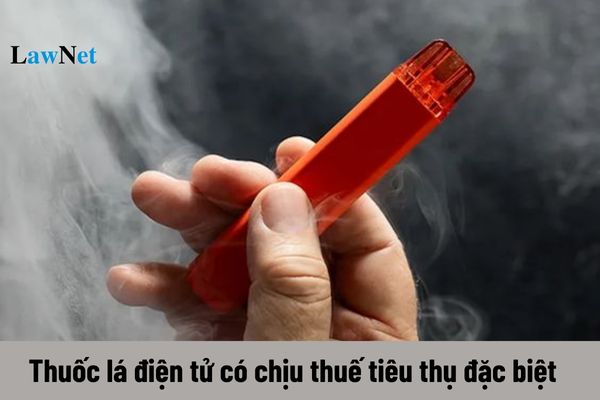Does excise tax apply to e-cigarettes in Vietnam?
Does excise tax apply to e-cigarettes in Vietnam?
Pursuant to Article 2 of the Law on excise Tax 2008, as amended by Clause 1, Article 1 of the Law on excise Tax Amendment 2014, certain provisions are specified as follows:
Taxable Objects
- Goods:
a) Cigarettes, cigars, and other preparations derived from tobacco designed for smoking, inhaling, chewing, sniffing, or sucking;
b) Alcoholic drinks;
c) Beer;
d) Automobiles with less than 24 seats, including dual-purpose vehicles designed with a fixed partition between the passenger compartment and the cargo area;
đ) Motorcycles with over 125cm3 engine cylinder capacity;
e) Aircraft and yachts;
g) Various gasoline types;
h) Air conditioners with a capacity of 90,000 BTU or less;
i) Playing cards;
k) Votive paper and votive goods.
- Services:
a) Night club business;
b) Massage parlor and karaoke business;
c) Casino business; prize-winning e-games including jackpot, slot machines, and similar devices;
d) Betting business;
dd) Golf business, including the sale of membership cards and golf playing tickets;
e) Lottery business.
Thus, according to the above regulation, e-cigarettes are not subject to excise tax.

Does excise tax apply to e-cigarettes in Vietnam? (Image from the Internet)
What entities are exempt from excise tax in Vietnam?
According to Article 3 of the Law on excise Tax 2008, as amended by Clause 2, Article 1 of the Law on excise Tax Amendment 2014, the following specific regulations apply to non-taxable entities:
- Goods produced, directly exported by manufacturing facilities or sold, consigned to other business establishments for export;
- Imported goods including:
+ Humanitarian aid, non-refundable donations; gifts to government agencies, political organizations, social-political organizations, socio-professional organizations, social organizations, socio-professional organizations, armed forces units, gifts to individuals in Vietnam as per the regulations of the Government of Vietnam;
+ Goods in transit or borrowed to pass through Vietnamese customs or borders, trans-shipped according to the Government of Vietnam's regulations;
+ Temporarily imported goods for re-export and temporarily exported goods for re-import not subject to import or export taxes within the time limits prescribed by the law on export and import taxes;
+ Personal effects of foreign organizations or individuals eligible for diplomatic immunity; goods carried by passengers within duty-free allowance; goods imported for duty-free sale according to the law;
- Aircraft and yachts used for the purpose of commercial freight transport, passenger transport, tourism, and aircraft used for security and defense purposes;
- Ambulance vehicles; prisoner transport vehicles; funeral vehicles; vehicles designed for both seating and standing carrying 24 or more people; vehicles operating within recreational parks, sports complexes that are not registered for circulation and do not participate in traffic;
- Goods imported from abroad into non-tariff zones, goods purchased domestically for sale into non-tariff zones and only used within the non-tariff zones, goods traded between non-tariff zones, except for passenger vehicles with less than 24 seats.
Which entities are excise taxpayers in Vietnam?
According to Article 4 of the Law on excise Tax 2008, there are specific regulations as follows:
- Entities responsible for paying excise tax are organizations and individuals producing, importing goods, and providing services subject to excise tax.
- In cases where organizations or individuals engaging in export business purchase goods subject to excise tax from manufacturing facilities for export but sell them domestically, the export business entities are liable to pay the excise tax.
What are the regulations on tax refunds and deductions in Vietnam?
According to Article 8 of the Law on excise Tax 2008, specific regulations on tax refunds and deductions are outlined as follows:
- Taxpayers are entitled to tax refunds in the following cases:
+ Temporarily imported goods for re-export;
+ Goods are raw materials imported for manufacturing or processing export goods;
+ Tax finalization upon merger, consolidation, division, splitting, dissolution, bankruptcy, ownership conversion, business transformation, or cessation of activities, resulting in overpaid tax;
+ Decisions for tax refund issued by competent authorities according to the law and international treaties to which the Socialist Republic of Vietnam is a member.
+ Tax refunds according to point a and point b of clause 1 involve only goods actually exported.
- Taxpayers producing goods subject to excise tax using materials that have already been taxed, provided with legitimate documentation, are allowed to deduct the paid tax on materials when determining the tax payable at the production stage.

